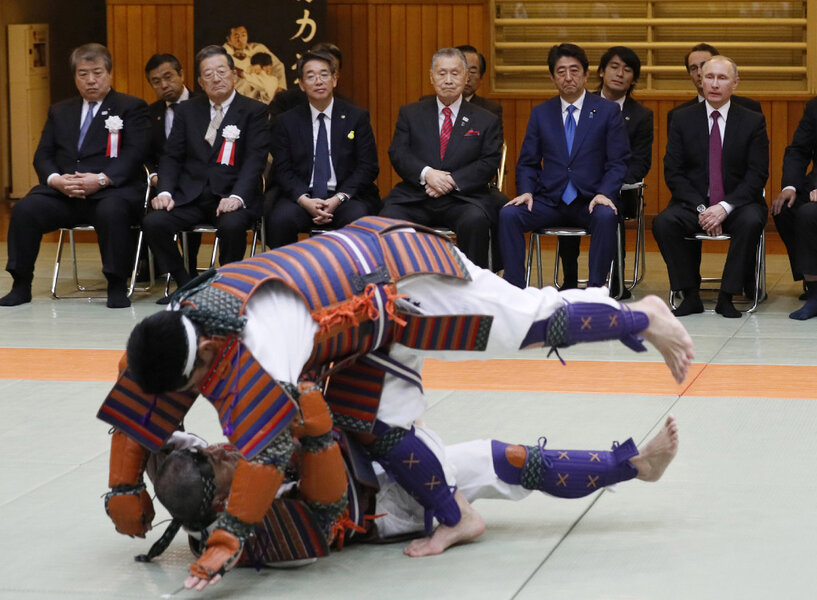A Japan-Russia step toward reconciliation
In many countries, a popular reaction to globalization has led to the election of leaders – such as in the United States – with a strong passion for nationalism. These leaders often demand greater sovereignty over the economy or, in some cases, territory. To cool these passions and prevent conflict, nations must often find a common purpose. A good example was a recent summit between Japan and Russia.
At a Dec. 15-16 meeting, Japanese Prime Minister Shinzo Abe and Russian President Vladimir Putin agreed to take steps that might someday help resolve a 71-year dispute over a string of islands. They agreed to explore joint economic projects on the islands under a possible “special” legal framework that would, in the words of Mr. Abe, not “infringe on the sovereignty positions of either side.”
In addition, the two Asian neighbors agreed to jointly invest $1 billion in Japanese development of the Russian economy, along with other commercial ventures by Japanese firms. And the surviving former Japanese residents of the islands, who were forced to leave after the Soviet invasion, might be able to visit their ancestors’ graves.
Several of Asia’s many island disputes have led to joint development of resources as a way to avoid direct confrontation over territory or to create political conditions for an eventual settlement. The Japan-Russia deal could become another model. The proposed joint development will bring the two peoples closer together, said Mr. Putin, and “help foster trust toward a peace treaty.”
That last point is critical. Moscow and Tokyo have never formally ended hostilities from World War II. And toward the end of the war, the then-Soviet Union took over the islands, which were long held by Japan. Among the Japanese, they are known as the Northern Territories. To Russians, they are the Southern Kurils.
Nationalists in both countries, which include Putin and Abe, insist on sovereignty over the islands. And after Putin took Crimea from Ukraine in 2014, he may have little inclination to give land to Japan. Yet both men, for strategic reasons, see advantages in working together on economic goals as they keep talking about ownership and control of the islands. Even the deepest gulf can look less worrisome if spanned by at least one bridge.






